#Datestamp
Explore tagged Tumblr posts
Text

#midwest gothic#midwest aesthetic#ethel cain#ethel cain core#rural aesthetic#rural gothic#zillow finds#ethel cain aesthetic#vhs aesthetic#unteriors#timestampcore#timestamp core#2024#datestamp#date stamp
152 notes
·
View notes
Text

6 notes
·
View notes
Text
Signed with Date Rubber Stamp Wide | Acorn Sales
Streamline Paperwork with the "Signed with Date" Rubber Stamp Wide from Acorn Sales
The "Signed with Date" Rubber Stamp Wide from Acorn Sales is the perfect solution for anyone looking to speed up the document signing and dating process. This durable, easy-to-use rubber stamp combines your signature and the date in one clear, consistent impression, saving you time and ensuring professionalism across your documents.
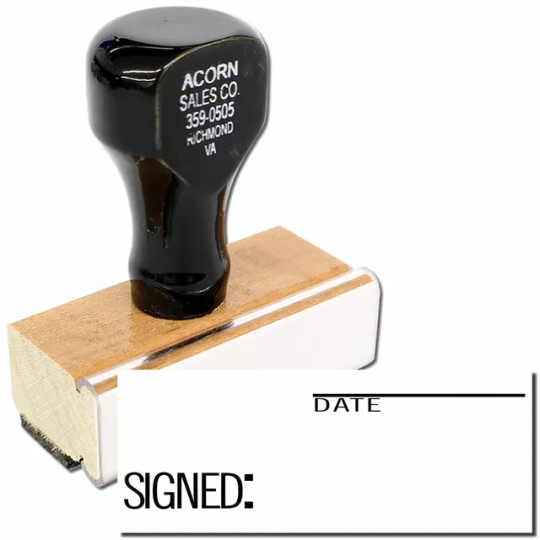
Ideal for businesses, legal offices, and accounting firms, this stamp is great for handling high-volume paperwork like contracts, invoices, and internal forms. With customizable options and a long-lasting design, it’s built to withstand frequent use while maintaining clarity on every document.
Upgrade your office supplies today and streamline your workflow with the "Signed with Date" Rubber Stamp Wide from Acorn Sales!
SignedWithDate
#RubberStamp#WideStamp#AcornSales#DocumentSigning#OfficeSupplies#StampingTools#DateStamp#LegalTools#BusinessEfficiency#CustomRubberStamp
0 notes
Text
i. Reading Looking For The Good War has, among many other things, I think really helped me to clarify and articulate what I find so disquieting about "Points" as an episode. (Which is not all of it! There are certainly plenty of scenes that I find fascinating and/or enjoyable to watch.) But:
"It is much easier to tell a sentimental war story with a happy ending, in which valor eclipses causes and reconciliation triumphs over everything--a comedy, in other words--than it is to tell another, unsentimental kind of story." (page 89)
This is what it is, exactly--"in which valor eclipses causes and reconciliation triumphs over everything" could more or less be the logline of "Points." This is most egregiously evident to me in the scene of Nazi general's surrender, but the scene where Winters tells the Nazi officer to keep his sidearm is also I think highly indicative of this drive towards reconciliation, however rotten, above all else. And Samet articulates that wonderfully, and articulates as well the cost of this type of narrative:
"Yet sentimentality does more than shape the way we commemorate wars. It informs all those cultural and sociological attitudes in the shadow of which wartime and postwar policies are crafted, and it prevents a more productive and enduring sympathy that, in cooperation with reason, might guide our actions and help us become more careful readers of war's many ambiguities and false seductions." (page 83)
ii. The layers of dislike I have for the Nazi general scene are manifold; the mirroring of Winters and the Nazi general and thereby Easy Company with the Nazi soldiers feels incredibly sinister, perhaps most aggressively so in its weird push to rehabilitate the Nazis as soldiers, and thus to both foreshadow (within the world of the show) and echo (in the world of the audience) the archetypal defense that Nazi higher-ups would put forward at Nuremberg and beyond, that they were just following orders.
iii. The mirroring of Winters and Easy Company with the Nazis is clearly intentional, and somewhat bizarrely explicit ("You've found in one another a bond that exists only in combat among brothers") and maudlin (the panning shots over the Nazi soldiers' faces and wounds), and by the end the urge to parallel the two leaders and the two armies--indeed, to collapse one into the other, in order to make them functionally the same--seems to cause a sort of scriptwriting amnesia about who these words are actually being said by and to. Once again the greater historic context makes this especially chilling, Operation Paperclip being perhaps the most salient point to evoke. (I am also haunted, forever, by a statistic that Michael C. C. Adams cites in The Best War Ever, that a September 1945 survey of American GIs found that 22% believed the Nazi treatment of Jewish people to be justified. Granted, this survey would not have been taken using modern sampling methods, and who knows what the sample size was to begin with or what soldiers in particular were being surveyed. But still.)
iv. The scene leans heavily into the idea of a unique soldierly bond that unites not only each individual army within itself but bonds the two armies together. ("You've found in one another a bond that exists only in combat, among brothers who've shared foxholes, held each other in dire moments, who've seen death and suffered together.") Besides being disquieting for reasons I state above, I think it's notable that the Nazi general's speech emphasizing the brotherhood of soldiers happens directly after the short scene between Winters and Sobel, wherein Winters chides Sobel on a point of military ritual ("We salute the rank, not the man"). Sobel is outside the brotherhood; he doesn't understand how to be a soldier; whereas the Nazis are within the brotherhood, so much so that they are allowed to articulate its terms. (This is egregious no matter what, but becomes all the more so when it is framed as a Jewish man being excluded from the "club" of military brotherhood while WASP Americans and literal Nazis are allowed in.) (Meanwhile, Liebgott occupies a sort of bizarre placement in this scene, there to ventriloquize--indeed, perhaps neutralize, or even legitimize--the Nazi general's words, but not speak for himself.)
v. This gets to another point that Samet makes that stuck out to me, about the inherent tautology of military culture. She quotes William Styron, who in a 1964 review of General Douglas MacArthur's memoir said:
"Anyone who has lived as a stranger for any length of time among professional military men, especially officers, is made gradually aware of something that runs counter to everything one has been taught to believe—and that is that most of these men, far from corresponding to the liberal cliché of the super-patriot, are in fact totally lacking in patriotism. They are not unpatriotic, they simply do not understand or care what patriotism is. [...] A true military man is a mercenary [...] and it is within the world of soldiering that he finds his only home." (Samet quotes Styron on page 233; I'm quoting here from the full review)
The point of being a soldier is to be a soldier; the point of the military is to have a military. She also has this to say--especially saliently, I think, for obvious reasons--about Ambrose, and his perspective specifically in Citizen Soldiers:
"By means of emphasis and convenient omission, Ambrose preserves his focus on unity, not division; right, not wrong; liberation, not subjugation. Paradoxically, given that he makes so much of American idealism, he often subordinates a consideration of causes altogether to a veneration for the magnificence of the army itself. The creation of that army, rather than the victory it made possible, becomes 'the great achievement of the American people and system,' just as the nation's 'greatest nineteenth-century achievement' had been, according to Ambrose, 'the creation of the Army of the Potomac' rather than the end it eventually secured--the abolition of chattel slavery." (page 46)
Here we are back to the first Samet quote from above: valor eclipses causes and reconciliation triumphs over everything. To be a military man--to be part of the club, the brotherhood, the "bond that exists only in combat"--is to "subordinate a consideration of causes altogether to a veneration for the magnificence of the army itself." The country and the cause that the Nazi general and his soldiers fought "bravely, proudly" for become sublimated, while that bravery and pride, stripped of more specific meaning, is extolled. What matters, by the time this scene happens--and it's the last scene in the core section of the episode, followed only by the close of the frame structure with Winters and Nixon and then the baseball scene-cum-epilogue--is not the American cause that Easy Company was fighting for, and certainly not the Nazi atrocities they were fighting against, but rather a reconciliation that views the experience of war as preeminently important. Sobel, who did not experience combat, is dismissed; the Nazi general, who did, is legitimated.
vi. And that, I think, is the core of the message that Band of Brothers promotes. Fandom often refers to the show in passing as propaganda, but I'm not sure that really gets to the heart of what it is, in the end, saying. I would suggest that it's not merely propaganda; it's a recruitment poster. It's not selling truth, justice, and the American way (or if it is, it's doing so only incidentally); it's selling the experience of being in the military as a transformative and ultimately positive one, that unites (a certain subset of) men through the unique crucible of battle, beyond any concerns about what, exactly, one is fighting for. So long as you know when and how to salute, you too can be a part of the brotherhood.
vii. All of which gets back to the scene earlier in "Points," when the Nazi colonel surrenders to Winters. The colonel first makes the explicit parallel between the Nazis and the Americans, and between himself and Winters in particular: "I wonder what will happen to us, to people like you and me, when there are finally no more wars to occupy us." He serves to explicate here more or less exactly what I was saying above: he sees himself and Winters united as military men, above and beyond their particular countries and causes.
Winters doesn't look thrilled about the comparison--but then almost immediately tells the Nazi colonel to retain his surrendered sidearm. I suppose this is supposed to read as magnanimous and fair-minded on Winters's part, but it also serves to reinforce the Nazi colonel's own words, validating the colonel's prioritization of their shared military positions above and beyond their allegiance to the countries and ideologies they were (at least nominally!) fighting for. As the scene itself shows, giving up a sidearm is an expected part of the surrender process, both practically and symbolically; by refusing it Winters is stepping outside military precedent--indeed, bending over backwards--to help the Nazi colonel retain dignity as well as firepower. On its own it is, I think, a frustrating and uncomfortable scene; in the broader context of the episode it sets up and reinforces the Nazi general's speech later on and the ways that Winters and the show itself find meaning in paralleling and reconciling the Americans and the Nazis with one other. (The Nazi colonel knows how to salute; and when he does so, Winters salutes him back.)
viii. Of course it's historically true that American soldiers tended to identify with German soldiers and civilians much more than they identified with people from Allied countries, as Samet herself and even the veteran interviews at the beginning of "Why We Fight" document. (And I don't believe that paralleling the Americans and the Nazis is necessarily something to be dismissed out of hand.) But because the end of "Points" is so overtly sentimental, paralleling the Americans and Nazis serves not as an indictment of American soldiers' amorality but rather as a rehabilitation of the Nazi soldiers and officers as soldiers and a paean to military culture divorced from meaning or cause. As Samet says--"valor eclipses causes and reconciliation triumphs over everything." The military, as an institution, whether it be American or Nazi, becomes the greater good of the war; while the causes those militaries were fighting for become not only secondary, but recede entirely.
#this is less 'notes for an essay i'm never going to write' and more 'working through my own feelings (with citations)'#band of brothers#wwii#according to the tumblr draft datestamp i started writing this almost three weeks ago#and it feels like there has been an uptick in discussion of ''points'' since then which this was written largely separately from#so if i seem to be over-explaining some of my points that is probably why#(that said if i am under-explaining any of my points i would be happy to get into it more as well)#bob meta
117 notes
·
View notes
Text
Tamagotchi Date Stamps Now Available at Japan Post Office Online Shop

Sending a letter out? It needs some Tamagotchi love! Bandai Japan has just announced 17 different Tamagotchi date stamps that are perfect for your next letter you’re mailing out. Each stamp features nostalgic cute Tamagotchi characters including Mametchi, Mimitchi, Kuchipatchi and more in different colors.
The stamps display Tamagotchi characters in pixel form with different elements from the Tamagotchi Original back in 1996. They’re also posting with letters which is the perfect touch for these stamps. All of the stamps feature a date, which includes 2 digits for the year, day, and month, which is adjustable on the stamp itself.


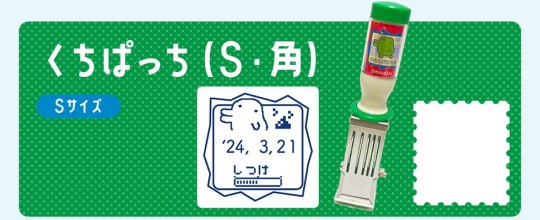

There are 3 different seizes, the first is the S size (W24 x D24 x H103mm) which features three different types of stamps in a square format the emulates the Tamagotchi Original screen and some graphics, these are ¥3,740.

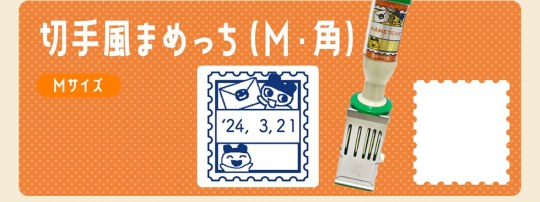






Second there is the M size which (W29 x D27 x H127mm) features 7 different types of stamps in a square format that is stamp shaped and features Mametchi, Kuchipatchi, Mimitchi, Pochitchi, Oyajitchi, Masktchi, and Ginjirotchi. These are ¥4,620.






Third is the L size (W38 x D38 x H147mm) features 5 different types of stamps in a circle format that feature Mametchi, Kuchipatchi, Mimitchi, Pochitchi, and Ginjirotchi. These are ¥5,940.



Fourth is the oval type (W50 x D35 x H147mm) which features multiple characters on an oval shape, these characters include Mametchi, Mimitchi, Kuchipatchi, Pochitchi, Masktchi, Babytchi, and Sekitoritchi. These are ¥6,160.

The stamps will require stamp pads which are available for ¥880, and are genuine Sanbe stamp pads and are available in black, red, and blue.
These will be sold in batches with the first batch of orders being accepted from December 22nd, 2023 through January 21st, 2024, shipments will then start on February 28th, 2024. The second patch of orders are being accepted from January 22nd, 2024 through February 29th, 2024, shipments start on March 29th, 2024.
#tamapalace#tamagotchi#tmgc#tamatag#virtualpet#bandai#news#stamps#datestamps#date stamps#postoffice#post office
69 notes
·
View notes
Text
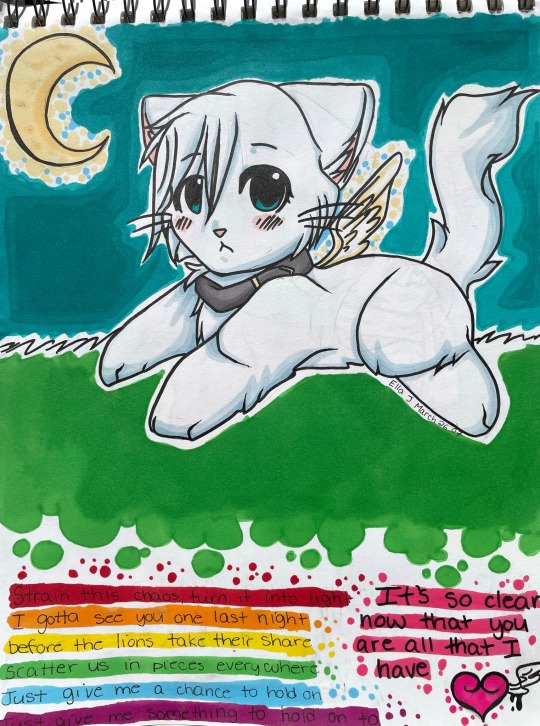
happy 17th birthday to this emo glamfur cat (?)thing w/ snow patrol lyrics at the bottom. march 26 2007
44 notes
·
View notes
Text

#dimage z3#p#this time thought i had the datestampe turned off#and the date isnt right#year ismt#konica minolta
9 notes
·
View notes
Text

49 notes
·
View notes
Text
steve in patterned shirts is like a rare bird sighting
#i found this post in my drafts datestamped feb 25th 2021#and i'll hit post on it today. two and a half years later#*#h50
34 notes
·
View notes
Text
i appreciate the amount of sebstan talk in this episode it's like basically everything i've been saying to my friends for the past 6 months
#LIKE 10 MINUTES OF IT!!! AWESOME!!!!#and also david just casually dropping cabnw spoilers like OK this ep has been datestamped for sure#lb
2 notes
·
View notes
Text
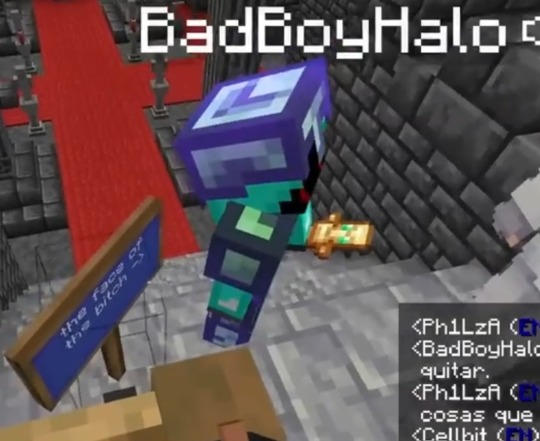
#no context mcyt#bbh#qsmp#no vod datestamp bc im backposting with screenshots i took and didnt save the vod date of (like a fool)#badboyhalo#the sign by richas fucking sent me
23 notes
·
View notes
Text
I keep forgetting to post my videos from my show 😭
2 notes
·
View notes
Text
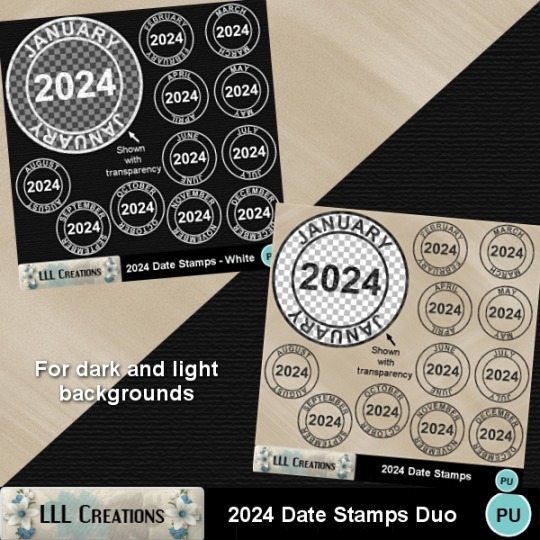
It's time to pick up the 2024 date stamps. It's important we put dates on our layouts or books for the future.
So... here are the 2024 Date Stamps, available in white for dark backgrounds or black for lighter backgrounds or pick up the duo for the best deal.
Happy 2024! Get them in my shop HERE
2 notes
·
View notes
Text
Or maybe that post where someone said something ignorant five years ago isn't a reflection of where they are now in their attempts at allyship. But no, stop defending a transphobe/racist/christian apologist/etc! 🙄
Anyone else getting really fucking sick of this support:condemn dichotomy where folks online act like the only two possible responses to anything ever are to wholeheartedly support it or wholeheartedly condemn it?
"Oh you said that you dont think that random stranger should be sent full on death threats and doxxed for their iffy artwork? Why do you support racism" how about we all go outside and interact with real people and see how they react when you say things like that!
46K notes
·
View notes

